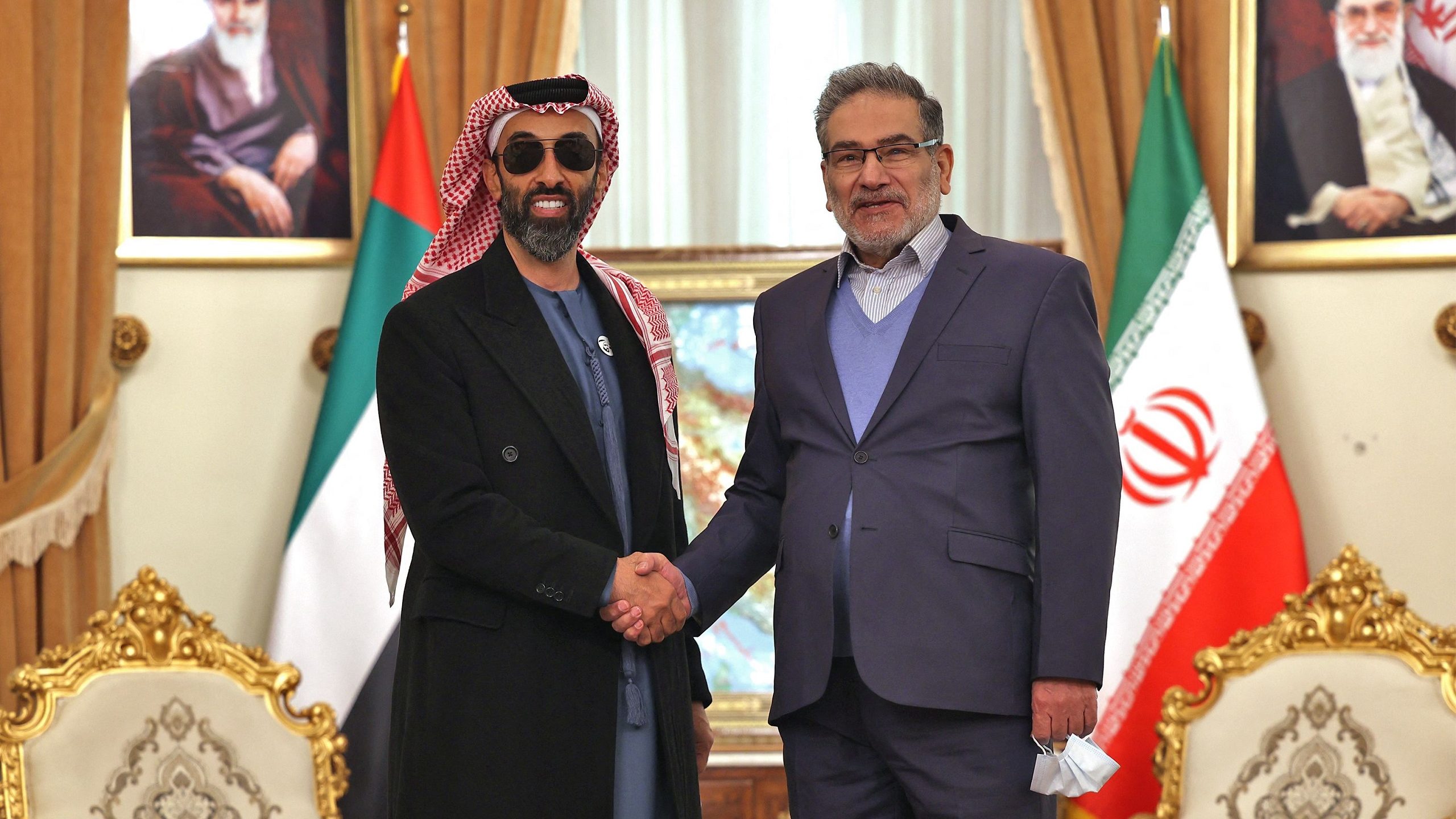UAE Envoy’s Return to Tehran Could Break Ice but Real Benefits Depend on a Nuclear Deal
Abu Dhabi will hesitate to move forward without US sanctions removed and the approval of Saudi Arabia
The United Arab Emirates will reinstate its Ambassador to Iran Saif Mohammed Al Zaabi, who will return to Tehran in the coming days, more than six years after the UAE downgraded its diplomatic relations with Iran.
According to the statement of the Emirati Foreign Ministry on Sunday, the move is part of an effort to “contribute to further advancing bilateral relations” and “achieve the common interests of the two countries and the wider region.”
The UAE downgraded its ties with Iran in solidarity with Saudi Arabia after local protesters in Tehran stormed their embassy in 2016, protesting the execution of a distinguished Shia cleric in Saudi Arabia. The relations declined further when the Emirates supported the American withdrawal from the nuclear deal in 2018 under the administration of then-President Donald Trump. After that, in the context of the Abraham Accords, which were signed in 2020, the UAE completely normalized its ties with Israel – a move that Iran condemned.
Ghanem Rafeh, a researcher on Iranian affairs at the Emirates Policy Center in Abu Dhabi, told The Media Line that the move must be understood in a wider regional context.
On the Emirati side, we’re seeing the continuation of a foreign policy guided by the “Principles of the 50,” namely, that “good neighborliness is the basis of stability” and that dialogue and negotiations are the way to achieve regional and global stability, he explained.
The “Principles of the 50” is a series of 10 principles proposed by the Emirati government to become the core guidelines for the country’s institutions within the next 50 years to “strengthen the union, build a sustainable economy, and harness all possible resources to build a more prosperous society,” according to The United Arab Emirates’ Government Portal, an official website of the Gulf country.
As for Tehran, one year on since Ebrahim Raisi was elected president, his government’s stated foreign policy objective has been improving relations with Iran’s neighbors. “We are seeing Tehran opening up diplomatic channels with Saudi Arabia, Kuwait, and the UAE,” Rafeh continued.
This holiday season, give to:
Truth and understanding
The Media Line's intrepid correspondents are in Israel, Gaza, Lebanon, Syria and Pakistan providing first-person reporting.
They all said they cover it.
We see it.
We report with just one agenda: the truth.


Mohammed Khan, a senior researcher and analyst on Middle Eastern affairs based in London, added that the Gulf Cooperation Council has recently emphasized collective diplomacy and cooling tensions in the region, especially in light of the US pivot to the Far East and a sense that the US has not done enough to curtail Tehran’s aggressive behavior.
“The Gulf seems to be making moves to address her own security. especially as the US is preoccupied with the Ukrainian conflict and its pivot to contain China,” he said.
Rafeh believes that “all sides are realizing, that after years of geopolitical competition in the region, there is no clear winner. Rather, the costs of competition have been too high, which is why regional players have opted to engage in negotiations.”
The hope is that the recent cooling of tensions can bring stability and economic prosperity to the players involved and to the wider region, he continued.
The tangible benefits of warming ties, however, are yet to be determined.
Khan says that economically, both countries can benefit from bilateral trade. However, the US sanctions on Iran will hamper this. And the UAE must be careful, or it too could face sanctions.
If the 2015 nuclear deal is revived, he added, then natural economic relations will develop between the two.
The UAE has a substantial Persian community with commercial links to Iran. And reinstating relations would ease tensions over the disputed islands in the Gulf, noted Khan.
It could also potentially serve as a foundation for a wider regional dialogue, Rafeh added.
As this move will thaw the ice between Abu Dhabi and Tehran, Khan believes that the UAE will be hesitant to move fast due to the US sanctions on Iran but also no real breakthrough in the talks between Tehran and Riyadh.
Saudi Arabia is the key actor in the Gulf and its signaling is important for other Gulf states, especially as Riyadh is not happy with the Iranian aggression against its territories and the Iranian support for the Houthis in Yemen, he explained.
“Regional dynamics are dependent on Iran changing its behavior, i.e., support for militias, noninterference in the affairs of other countries, and stopping its ballistic missile program and its nuclear program,” Khan continued.

